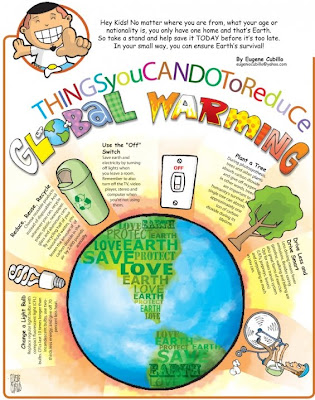Global warming is an existential challenge that continues to loom over our planet. As greenhouse gases accumulate in the atmosphere, they trap heat, leading to a cascade of environmental upheavals such as rising sea levels, extreme weather events, and biodiversity loss. But what if we could collectively rise to the occasion and make a difference? The transformative power lies in understanding the steps we can take to minimize global warming. Let’s delve into key strategies that empower individuals, communities, and businesses to mitigate climate change.
Is it too ambitious to think that individual actions can make a global impact? Perhaps it’s time to form a playful challenge: Can you adopt one new habit this month that contributes to the health of our planet? You may be surprised at how small, intentional changes can lead to significant reductions in carbon footprints.
Understanding the ways we engage with energy consumption, transportation, and waste management is crucial. Let’s explore the fundamental areas to address as we embark on this journey toward climate-conscious living.
Energy Efficiency: Powering Down for the Planet
In our increasingly electrified world, energy consumption is a focal point in the battle against climate change. The key to minimizing our impact starts with energy efficiency.
One of the most effective strategies is retrofitting homes and offices with energy-efficient appliances. From LED lighting to ENERGY STAR-rated refrigerators, the adage “use less, save more” applies here. Not only do these appliances consume less energy, but they also result in lower utility bills—an appealing proposition for both the environment and the wallet.
Consider also the potential of alternative energy sources. Solar panels, wind turbines, and geothermal systems are becoming more accessible. Making the switch to renewable energy not only decreases reliance on fossil fuels but also reduces greenhouse gas emissions. You might think that installing solar panels is a hefty investment, but with government incentives and decreasing costs, this option is worth serious consideration.
Moreover, one must not forget the importance of behavioral changes. Simple adjustments such as turning off lights when leaving a room and unplugging devices can cumulatively lead to substantial energy savings. Why not challenge yourself to conduct an energy audit at home or work this month? Not only will it enhance your awareness, but it may also inspire innovative solutions.
Transportation: Rethinking Our Mobility
Transportation plays a pivotal role in global warming, contributing significantly to carbon emissions. Assessing our transportation habits is essential to reducing our carbon footprints.
Consider the impact of vehicle choices. Emission standards for new cars are becoming stricter, and electric vehicles (EVs) are gaining popularity. While the upfront costs can be daunting, the long-term savings and environmental benefits make EVs an appealing option. Moreover, carpooling, public transit, biking, and walking are excellent alternatives to solo driving. The next time you’re traveling within your community, ask yourself: Could I opt for a mode of transportation that consumes less energy?
However, it’s not solely about the individual; communities must also advocate for better infrastructure. Urban planning can prioritize public transport, bicycle lanes, and pedestrian pathways. Support campaigns aimed at reducing reliance on personal vehicles and promoting cleaner transport options. The challenge is not only personal but collective—encouraging local governments to commit to sustainable transit solutions is imperative.
Waste Management: The Recycling Renaissance
The matter of waste management may seem mundane, but it is anything but trivial. Landfills contribute to greenhouse gas emissions, particularly methane, a potent greenhouse gas. Thus, it’s imperative to rethink waste disposal strategies.
One of the simplest yet most effective actions is to enhance recycling efforts. Understanding what materials can be recycled or composted can drastically reduce waste. Make it a game to see how much waste you can divert from the landfill each week. The positive impacts of recycling—and composting—can reduce energy use compared to producing new materials from raw resources, leading to significant climate benefits.
Moreover, consider the philosophy of “reduce and reuse” before recycling. By minimizing consumption, opting for second-hand goods, and choosing sustainable materials, individuals can drastically lower their waste footprint. Contributing to a culture of sustainability in your community can spread awareness and inspire others to follow suit.
Conclusion: Collective Responsibility for a Sustainable Future
As we reflect on the myriad ways in which we can contribute to minimizing global warming, one fundamental principle emerges: every action counts. The challenge—adopting new habits and fostering community dialogue—can drive meaningful progress against climate change.
In the face of daunting environmental hurdles, it is our combined actions that will lead us toward a more sustainable future. So, indulge in the question posed at the outset: What change will you commit to this month? This moment to reflect on our individual and collective responsibility—a commitment can be the catalyst for broader societal change.







